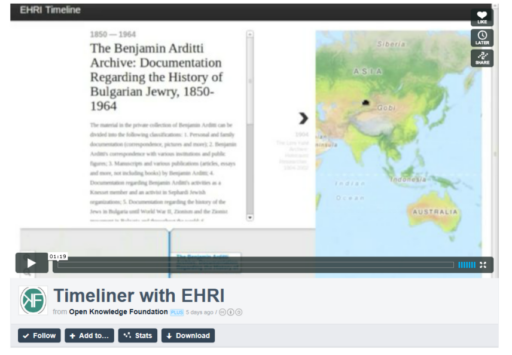EHRI Timeline

Behind the scenes of EHRI a team of professionals is working hard to develop what is going to be EHRI’s main achievement: an online portal that will give access to now dispersed Holocaust resources and a Virtual Research Environment that will encourage advanced and collaborative research.
EHRI now has 700 test records in a database that contains harvested archival collections descriptions about the Holocaust.
On November 21 and 22, Mike Bryant of King’s College London (KCL) and working for EHRI took part in the Open Humanities Hack, the first Digital Humanities hack organized jointly by the KCL Department of Digital Humanities , DARIAH, the Digitized Manuscripts to Europeana (DM2E) project and the Open Humanities Working Group. During the day a group of researchers, data providers and coders worked together on new open-source applications developed by the organizers.
Mike Bryant led the Timeliner group. Timeliner is an open-source tool that makes it easy to create visually compelling timelines from Google Spreadsheets. Mike used EHRI data to create a prototype of an EHRI timeline. What was exciting about this group’s work was its attempt to use the Timeliner as a resource discovery tool. The EHRI team are going to start integrating Timeliner in the portal, so that users can browse and search for Holocaust related archival collections with the help of a timeline.
Click on the link to watch a demonstration of the EHRI Timeliner.
Timeliner group with Mike Bryant (right).

